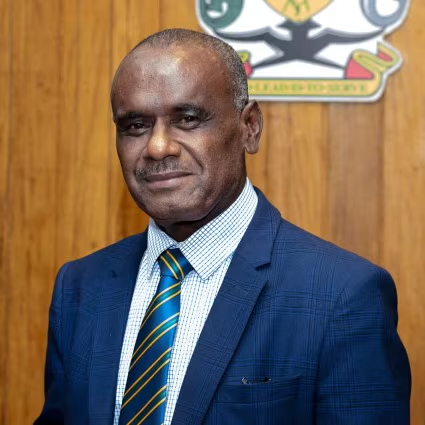
GNUT’s First-Year Record of Economic Reforms and Recovery
by Ronald Toito’ona
One year after taking office, the Government for National Unity and Transformation (GNUT) under Prime Minister Jeremiah Manele has achieved major milestones in economic reforms and recovery.
The Prime Minister, in his one-year anniversary statement, declared economic transformation not as an aspiration, but as a process already in motion.
“In our first 100 days, we laid the groundwork with decisive action,” Manele said. “Since then, we have progressed into implementation mode, driving forward initiatives that are reshaping our economic landscape.”
From fiscal reform and infrastructure upgrades to rural financing and trade support, GNUT has pursued a multifaceted agenda focused on jobs, investment, and inclusive development.
National Dialogues Driving Change
A cornerstone of GNUT’s economic strategy is national dialogue.
In 2024, the government hosted the National Economic Summit, Energy Summit, and Donor Roundtable—bringing together government, private sector, civil society, and development partners.
“These dialogues provided a vital platform for reflection and consensus building on what and how to address our economic challenges,” Manele said.
Outcomes include targeted funding to productive ministries in the 2025 Budget, a deal with Solomon Power to reduce electricity tariffs by 25% by 2030, and renewed focus on infrastructure planning through reviews of the National Infrastructure Priority Pipeline and the National Transport Fund.
Special Economic Zones and Industrial Growth
GNUT is pushing legislation to create Special Economic Zones (SEZs) aimed at stimulating investment and job creation, particularly in rural areas.
“The SEZ bill now before Parliament is designed to stimulate investment, streamline business processes, and generate employment,” Manele explained.
These zones will offer tax incentives, infrastructure support, and flexible regulation to attract both domestic and foreign investors—especially in manufacturing, tourism, and agriculture.
“In parallel, we are developing a National Industrialisation Policy to support local industries through better infrastructure, access to technology, and expanded market reach,” the Prime Minister added.
Fiscal Reform and Fair Taxation
GNUT has begun overhauling the national tax system to ensure fairness and fiscal sustainability.
“The aim is to introduce a fair, simple, and broad-based tax regime that ensures everyone pays their appropriate share,” said Manele.
Phase One included the passing of the Tax Administration Act and preparation of a new VAT bill. Phase Two will tackle reforms to income tax, excise duties, and resource rent taxes.
“These reforms are vital to improving revenue collection and creating a fairer system for both businesses and individuals,” Manele said.
Labour Mobility: Skills Abroad, Growth at Home
GNUT is working toward deploying 16,000 Solomon Islanders into seasonal work programs by 2028.
A recent success includes a bilateral deal with Niue.
“In August 2024, we signed a bilateral agreement with Niue to pilot a labour mobility program for retired Solomon Islands nurses,” Manele announced.
He added, four experienced nurses are now working in Niue’s health sector.
He stressed that labour mobility is more than just employment.
“It is a pathway to skills development, human capital growth, and community empowerment.”
Supporting MSMEs and Export Potential
Manele said GNUT is focused on building a strong base for Micro, Small and Medium Enterprises (MSMEs) and strengthening export capacity.
A National Export Policy is being developed with key stakeholders to improve access to finance, trade data, and overseas markets.
“We also secured a $3 million grant in partnership with the Young Entrepreneurs Council of Solomon Islands to grow youth-led tourism businesses,” he added.
“These programs will enhance the resilience of our local industries, reduce reliance on imports, and equip Solomon Islanders with the tools and opportunities needed to thrive,” Manele said.
Revitalising Agriculture and Value Chains
The agriculture sector remains a top priority.
GNUT launched a $2.26 million Agriculture Revolving Fund to support 57 cocoa, copra, and coconut traders across all provinces.
“This initiative supports every stage of the value chain—from production to market,” the Prime Minister said.
Reviving CEMA (now Solomon Commodities) is central to this vision.
Processing plants are planned for Russell Islands and Noro, enabling farmers to add value to raw products.
The 2025 Budget includes $6 million for food processing and $17.5 million for trade subsidies and CEMA support.
“By supporting local producers and promoting domestic value-adding, we are laying the foundation for a more diversified and self-reliant economy,” Manele said.
Bridging Digital and Rural Gaps
GNUT is also expanding access to technology in rural areas.
A Digital Village Hub was launched in Namobaula, Central Kwara’ae, under the E-Agriculture Strategic Framework with FAO support.
The solar-powered hub provides real-time market prices, farming resources, and even health and education services.
“This approach shows that technology must work for the farmer, the teacher, and the nurse—not just for urban elites,” the Prime Minister said.
ENDS//
